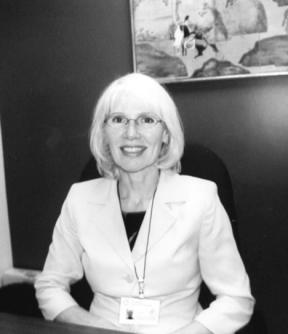Jan Rose is not a doctor. But she knows what doctors need and how to help them succeed.
Most recently, she worked as vice president of business development at the Seattle Prostate Institute, a world renowned center that pioneered the use of radioactive seeds for treating prostate cancer.
These days, she is the behind-the-scenes point person in Whidbey General Hospital’s fight to recruit and keep doctors.
“It gets harder and harder for providers to survive,” said Rose from her office at the hospital. “There are so many negative economic pressures.”
The hospital hired Rose six months ago to recruit physicians. It was a new position and a calculated risk.
Over the past year the hospital has battled budget shortfalls by slashing positions, encouraging early retirements and cutting back on some services.
But, at the same time, there was no denying a growing physician shortage. Previously, hospital CEO Scott Rhine helped recruit doctors along with his other duties. But last year, when the hospital began looking for upwards of five to eight physicians, the task proved to be too big.
“(Rose) had managed physician practices. She had that expertise. That was one of the key things we were looking at,” Rhine said.
Rose, who Rhine said is paid about $60,000 annually, essentially has two jobs: encouraging new physicians to set up shop on Whidbey Island, and helping them with paperwork and other time consuming details to keep their practices running smoothly.
Despite the island’s picturesque views, getting doctors to locate here can be a tough sell. Rural doctors earn less than those who practice in urban areas.
Doctors in small communities also tend to be on call much of the time, with fewer colleagues to rely on as backup.
But perhaps the biggest challenge for physicians, especially those fresh out of medical school, is going into business for themselves.
There are insurance companies to deal with, paperwork requirements, billing, personnel issues and office supplies to buy. Rose handles much of this mundane but necessary work for many of the physicians she recruits, freeing them up to focus on medicine.
“She takes responsibility if they need equipment and supplies to work with our purchasing agent. If a new physician needs a billing system or computers, she interviews vendors,” Rhine said. “She’s really an administrator. She’s really doing many things.”
One new tool Rose has at her disposal is the ability to offer doctors paid employment. Previously, the hospital helped physicians by staffing clinics and providing space for them to practice. In some cases physicians also were guaranteed a salary, with the expectation they would pay the hospital back if they did not receive sufficient income. If they were unable to pay the hospital back, then they were required to provide additional years of service.
But last year, hospital administrators decided they needed to go a step further. In July 2002, for the first time ever, they hired a doctor as an employee. Dr. David Slepyan, a plastic surgeon, was put on a one-year contract. And this spring the hospital hired Dr. Ken Sizemore, an obstetrician-gynecologist, on a three-year contract.
The idea was to provide doctors with a job rather than the headache and uncertainty of a business to run. In return, hospital administrators say they hope the doctors launch private practices on the island and decide to stay.
The two new internal medicine specialists who will be working out of Oak Harbor Internal Medicine are hospital employees. So is an ear, nose and throat doctor slated to begin here this fall.
Offering doctors guaranteed salaries and, in some cases, employment contracts has become increasingly popular in rural parts of the state, where the competition for doctors is fierce and financial uncertainties loom large.
“Providers have gone to the hospital and said, ‘If you want me in town I need to have a guaranteed salary,'” said Kris Sparks, director of the state Department of Health’s Office of Community and Rural Health. “It’s happening in a lot of rural communities across the state.”
For Rose, the notion of employing doctors with short-term contracts has obvious appeal.
“A lot just want to practice medicine,” she said.
So far, people are pleased with the work Rose has done in just a few months. Working with the state as well as with a recruiting specialist who pre-screens candidates, Rose has helped bring five new doctors on board.
New doctors mean fewer patients will go off the island for care. And it’s hoped that the new physicians will generate more patients for Whidbey General.
“It’s definitely the way we can increase our bottom line here at the hospital,” said Pat Lamont, a union shop steward who works as the hospital’s purchasing agent and printing and duplicating coordinator. “In order to increase revenue we need to bring more patients into the hospital, especially surgeries.”
Rose said she was sensitive to the concerns of some hospital employees who might question the wisdom of adding her position in a time of financial uncertainty.
“It’s difficult for some of them to understand the full picture of the recruitment effort,” Rose said. “They see the hospital spending money but they aren’t always cognizant that there will be revenue coming back in hopefully to offset those expenditures. It’s a real hard time for people here.”
Lamont said she’s pleased so far with Rose and thinks the hospital’s new approach in hiring some badly needed physicians holds promise.
“Apparently that plan is working,” she said. “Whether it works out financially it will take a few years to figure out.”



